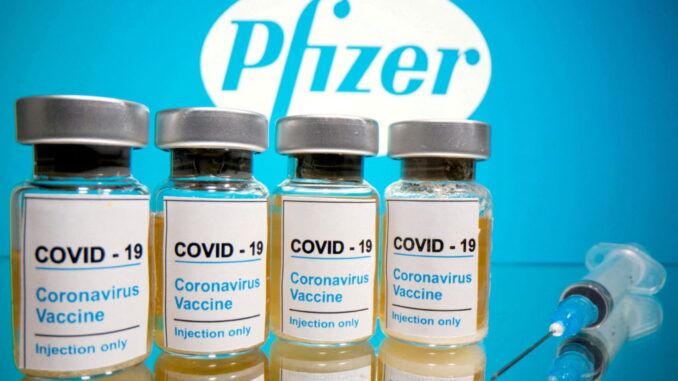
A Belgian immunologist, who is one of Europe’s best-known champions of medical research says that he suspects the third dose of the Pfizer covid vaccine was responsible for sending his cancer into overdrive.
67 year old Michel Goldman, M.D., Ph.D., professor of immunology and pharmacotherapy at the Université libre de Bruxelles in Belgium, is also a lifelong promoter of vaccines
The Defender reports: But he told The Atlantic he wants discussion of the COVID-19 vaccine to be transparent — so he went public about his suspicion that the Pfizer booster shot he received on Sept. 22, 2021, may have induced rapid progression of his angioimmunoblastic T-cell lymphoma (AITL), a type of lymphoma he’d been diagnosed with before he got the booster shot.

BYPASS THE CENSORS
Sign up to get unfiltered news delivered straight to your inbox.
You can unsubscribe any time. By subscribing you agree to our Terms of Use
After his diagnosis, Goldman said he rushed to get the booster shot, believing he would need it more than most people because once he started chemotherapy, his immune system would be compromised.
But after receiving the shot, Goldman’s follow-up CT scan showed something unexpected: Within only a few days, his cancer had grown so fast that cancerous points were lighting up all over his scan.
“It looked like someone had set off fireworks inside Michel’s body,” The Atlantic reported.
Goldman and his brother, Serge Goldman, a fellow scientist and head of nuclear medicine at the teaching hospital of the Université libre de Bruxelles, suspected Goldman’s COVID-19 booster shot may have triggered the rapid proliferation of cancerous growth in his body.
The initial CT scan had been “a bit disturbing,” Serge Goldman told The Atlantic, because it showed an asymmetrical cluster of cancerous nodes around Goldman’s left armpit, where Michel’s first two doses of vaccine had been delivered.
The CT scan done after Michel’s third dose showed the cancer’s asymmetry had flipped and was clustered by his right armpit, where he received the third shot.
The brothers knew it could be a mere coincidence, but they thought it was important to investigate the possibility that the vaccine might be behind the clustering — because it could mean other people with certain forms of cancer might be at risk of a COVID-19 vaccine causing their cancer to progress more rapidly.
So on Nov. 25, 2021, the brothers — who had written prior papers together — and other colleagues published a case report in which they described Michel Goldman’s experience and urged the scientific community to study the phenomenon to see if it occurred in patients diagnosed with AITL.
“Since nucleoside-modified mRNA vaccines strongly activate T follicular helper cells, it is important to explore the possible impact of approved SARS-CoV-2 mRNA vaccines on neoplasms affecting this cell type,” the authors wrote.
The brothers said the case study “suggests that vaccination with the [Pfizer-BioNTech] BNT162b2 mRNA vaccine might induce rapid progression of AITL.”
They noted, however, that it would be “premature” to extrapolate the findings from Michel Goldman’s case to other patients with the same kind of cancer and that “dedicated studies are needed.”
Going public was ‘the right thing to do’
Michel Goldman’s case study added to the scientific literature that aims to understand the relationships between mRNA vaccines and the functioning of helper T-cells.
For instance, previous researchers have noted mRNA vaccines rev up helper T-cells, which may explain why Michel Goldman’s AILT went into overdrive following his third booster shot.
“Perhaps the shots gave such a jolt to his helper T cells that they went berserk,” The Atlantic reported. “If they were prone to forming tumors, or if they were already cancerous, then overstimulation could have made the problem even worse.”


